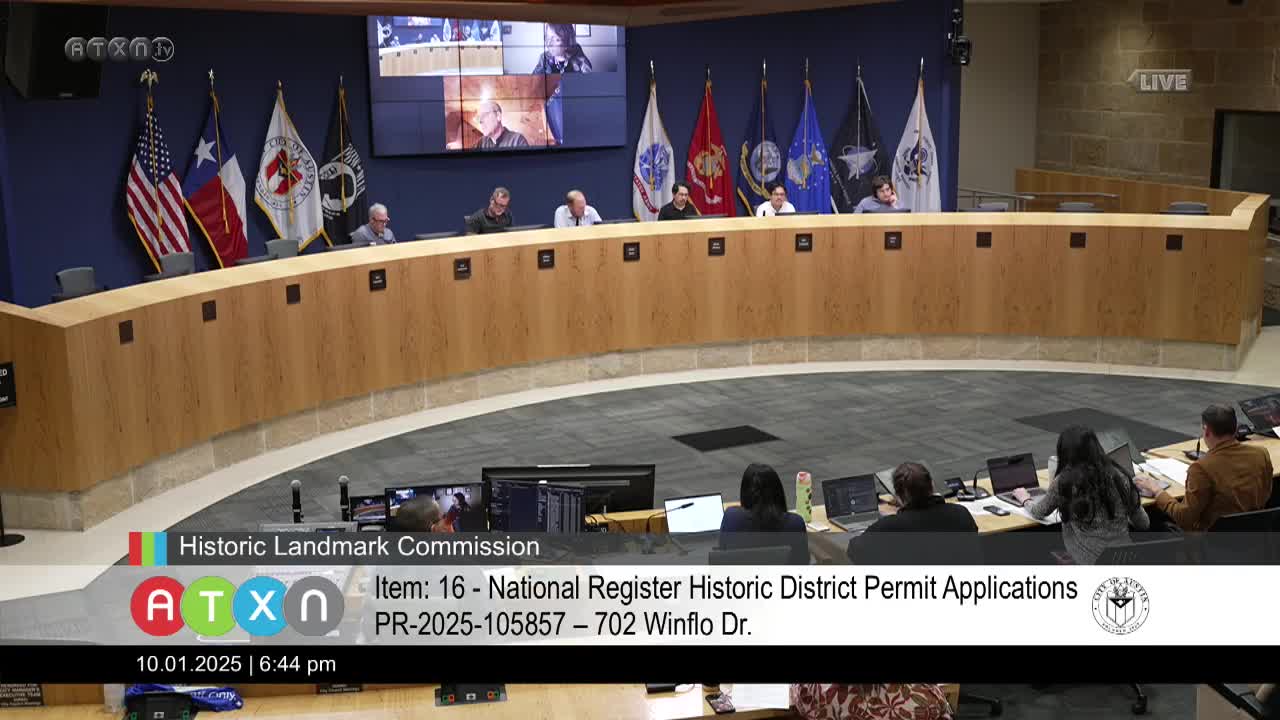Raleigh Austin proposes $260M for cultural trust and legacy business preservation
October 01, 2025 | Austin, Travis County, Texas
This article was created by AI summarizing key points discussed. AI makes mistakes, so for full details and context, please refer to the video of the full meeting. Please report any errors so we can fix them. Report an error »

The Austin City Council meeting on October 1, 2025, featured significant discussions regarding the 2026 bond properties and the preservation of Austin's cultural identity. The meeting began with a briefing from David Colligan of Raleigh Austin, who outlined the organization's mission to foster public-private partnerships aimed at enhancing inclusivity and equity in Austin's development.
Colligan emphasized the importance of the upcoming 2026 bond election, distinguishing it from the 2025 tax rate election. He presented a proposal for three key programs designed to support the sustainability of Austin's cultural and legacy businesses, which are increasingly at risk due to market pressures. The first program seeks to expand the Austin Cultural Trust, which was initially funded by a $12 million bond in 2018. Colligan noted that there is a significant unmet need for cultural funding, estimating a demand of at least $300 million.
The second program aims to establish a commercial trust to protect local legacy businesses, ensuring they can remain in their neighborhoods at affordable rates. This initiative draws inspiration from successful models in cities like San Francisco and Chicago. The third program focuses on workforce development and affordable housing for creatives, with a proposed budget of $260 million to leverage an estimated $859 million in projects.
Colligan's presentation highlighted the urgency of preserving Austin's unique cultural identity, which he argued is threatened by the displacement of small businesses and creatives. He called for community engagement and support from the council to advance these initiatives.
The meeting also included a briefing from Rebecca DeBrasco of the Texas Department of Transportation (TxDOT) regarding the I-35 interpretive plan. This initiative aims to create a framework for storytelling and interpretation along the I-35 corridor, following the demolition of historic buildings due to the highway project. DeBrasco noted that the interpretive plan is a collaborative effort involving various organizations, although it does not include direct funding for interpretation projects.
Commissioners expressed concerns about the potential for competing narratives among community organizations and the need for equitable access to the interpretive process. They emphasized the importance of ongoing dialogue to ensure that the project addresses historical disparities created by the highway's construction.
Overall, the meeting underscored the city's commitment to preserving its cultural heritage while navigating the challenges posed by urban development. The council plans to continue discussions on these initiatives in future meetings, with a focus on gathering community feedback and refining proposals for the upcoming bond election.
Colligan emphasized the importance of the upcoming 2026 bond election, distinguishing it from the 2025 tax rate election. He presented a proposal for three key programs designed to support the sustainability of Austin's cultural and legacy businesses, which are increasingly at risk due to market pressures. The first program seeks to expand the Austin Cultural Trust, which was initially funded by a $12 million bond in 2018. Colligan noted that there is a significant unmet need for cultural funding, estimating a demand of at least $300 million.
The second program aims to establish a commercial trust to protect local legacy businesses, ensuring they can remain in their neighborhoods at affordable rates. This initiative draws inspiration from successful models in cities like San Francisco and Chicago. The third program focuses on workforce development and affordable housing for creatives, with a proposed budget of $260 million to leverage an estimated $859 million in projects.
Colligan's presentation highlighted the urgency of preserving Austin's unique cultural identity, which he argued is threatened by the displacement of small businesses and creatives. He called for community engagement and support from the council to advance these initiatives.
The meeting also included a briefing from Rebecca DeBrasco of the Texas Department of Transportation (TxDOT) regarding the I-35 interpretive plan. This initiative aims to create a framework for storytelling and interpretation along the I-35 corridor, following the demolition of historic buildings due to the highway project. DeBrasco noted that the interpretive plan is a collaborative effort involving various organizations, although it does not include direct funding for interpretation projects.
Commissioners expressed concerns about the potential for competing narratives among community organizations and the need for equitable access to the interpretive process. They emphasized the importance of ongoing dialogue to ensure that the project addresses historical disparities created by the highway's construction.
Overall, the meeting underscored the city's commitment to preserving its cultural heritage while navigating the challenges posed by urban development. The council plans to continue discussions on these initiatives in future meetings, with a focus on gathering community feedback and refining proposals for the upcoming bond election.
View full meeting
This article is based on a recent meeting—watch the full video and explore the complete transcript for deeper insights into the discussion.
View full meeting
